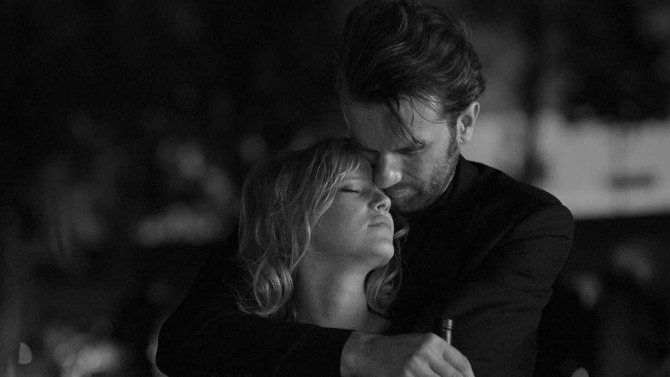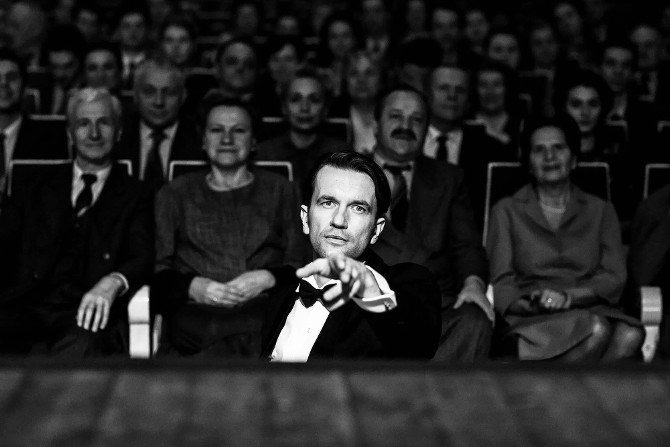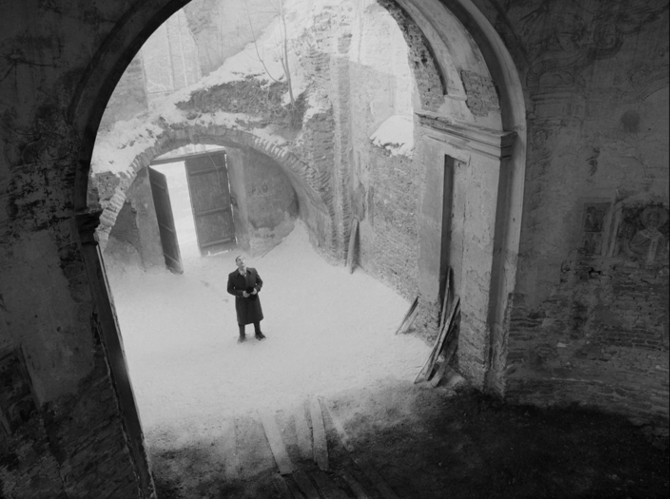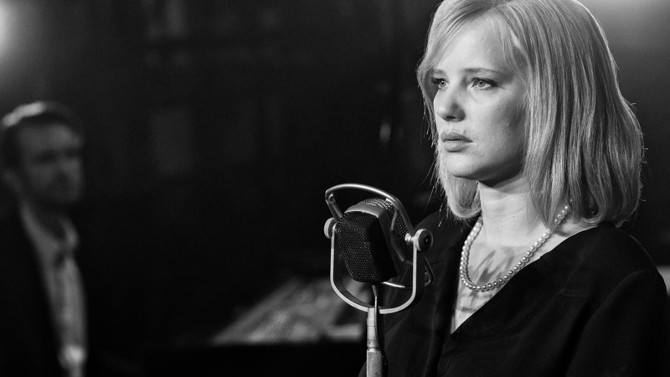It is likely that any other year, outside of 2018, would have meant that a second one of Pawel Pawlikowski’s films would have won Best Foreign Language Film at the Academy Awards (the other is 2013’s Ida). Instead, Alfonso Cuarón’s Roma (in its own right, a truly visionary film) froze out Cold War. Though this Polish export did achieve a nomination in the above mentioned category, as well as receive nods for Best Achievement in Directing and Best Achievement in Cinematography, it, in many ways, got overshadowed by another black and white foreign film released the exact same year. . . which is truly a shame.
Set in post-war Poland – 1949, to be exact, Wiktor (Tomasz Kot), a very bourgeoisie musician (a dynamo who can play the piano, as well as write and arrange music) – bold, confident, and gifted, tours the countryside, recruiting the most talented teens and twenty somethings for a folk music ensemble that will tour Poland and the rest of the Eastern Bloc. One of the finds, Zula (Joanna Kulig), an undaunted singer, may not be the most pure talent, though she has that certain ‘je ne sais quoi’. With a mystifying persona, she is spark plug, femme fatale (both director and actress inspired by Lauren Bacall and her sarcastic delivery), and, somehow, ingénue. Wiktor has found his muse. . . love at first sight. . . the genesis of a change that you can never return from. A love affair blossoms.
After refining their skills, the troupe begins to tour the country. . . with great success. Invited to Berlin, it is an impressive trajectory, yet we soon learn that Wiktor has been preparing for an escape to the West for some time. Intricately planned, he has everything prepared for them both. . . though this may seem like a concluding plot point. . . this is only the beginning of a multi-year voyage.
Like watching poetry in motion, Pawlikowski and cinematographer Lukasz Zal paint a beguiling motion picture. It is Monet fused with the black and white sensuality of influential Ukrainian photographer Ruslan Lobanov, it has the historical aesthetic of old Hollywood fused with a wholly original avant guard flair, it is Casablanca and Brief Encounter meets The Unbearable Lightness of Being; it is raw, passionate, emotional and real. . . striking both the cinematic heart and soul. Nature, be it wind or foliage, are part of every step taken (trees majestically reaching for the heavens), the ancient architecture of Europe watching these two smitten characters – having seen this all before (and understanding that, like the title itself, love is a battle that is long, complicated, confusing, and painful – after all. . . you must fall into it), yet they will not reveal their secrets until it is too late (watch for a church lost to time that still waits to be used once more). This picture breathes its own life, a rhythm both expected and not so, edited in a way that holds the viewer in raptured silence. The narrative, which covers a full decade and a half, often jumps years between, allowing the audience’s mind to race (filling in the hinted-at gaps that never will be truly revealed except in our own vivid imaginations), Pawlikowski never fearing that proceeding from A to C will impact the final vision. Also, like the best of cinema, the journey’s end seems almost predestined. . . yet you only realize this when you are already there. It lives history without being beholden to it. . . reflections (which are only used sparingly), provide a mesmeric perspective on the duality found in this abrupt new landscape – faith attempted to be swallowed whole by ideology, socialism desperately trying to transform former ways of life, personal beliefs a dividing line like a wall built through a city, tradition befuddling modernity, folk songs being skewed by an agenda, opposites attracting. . . you somehow suddenly realize that a reflection is not an exact vision at all, but something disturbingly different. That moment, and the rest, linger, entering the mind, body and soul – for those moved by powerful motion pictures, you might never truly be the exact same afterwards. Transcendent. Revolutionary. Eternal.
Like many of the best films of the past several years, a unique use of music is what ushers us through this tumultuous journey. Polish folks songs, filtering down from the hilltops, in from the countryside, from out of the past and into the present (never to be exactly the same again), metamorphose into the sounds of the West. . . Bohemian France a landscape that welcomes the modernity of jazz – yet, listen closely, and you might just hear those same songs from earlier rearranged in a very different way (thank you Marcin Masecki – who was also Wiktor’s piano-playing hands). The only true score found is one heard written for a film within a film (1957’s I Vampiri), meaning that, like the rest of the music on this fifteen year journey, every single note we hear is what our characters do as well (and what better way to bond us to this couple).
Truly transcendent, I do not believe that a profound piece such as this can come completely from the great unknown. . . even more revelatory when learning that Cold War is a relatively true retelling of Pawlikowski’s own parents. To harken back to his previous work – if Ida is to be contemplative in both story and style (symbolic of its main character, a nun lives a static, regimented, and simple life – which is what Pawlikowski so ably captured), Cold War is, in many ways, the opposite. The camera moves gracefully (its own dancing character), the colours, though still black and white, are a more vivid and dynamic range (the way faces can be painted with light so very differently in the same shot is staggering), and the overall piece bristles with a certain energy (though you would not deem this film to have much action, its pace, in a weird way, has a whirlwind essence that sweeps us away). From opening folk song to last gasp of wind, experience this story for the ages – it is up to you to find out if this love story will be a bitter pill to swallow.
This film is in Polish, French and numerous other European languages with English subtitles





Went straight from your compelling review to the trailer at https://youtu.be/LuVffp-j1po and then followed the breadcrumb trail to Amazon Movies, paid C$4.99 and took it all in.
This brilliant movie is all muscle — no scene goes to waste. The young singer in the State Propaganda Training House is asked about her probation for an assault on her father. “He mistook me for my mother, so I used a knife to show him the difference. Don’t worry. He didn’t die.”
The Polish Communist cultural commissar, “I want you to become a living calling card for our Fatherland. Add something new to your repertoire about land reform, world peace and the threats to it. And a strong number about the Leader of the World Proletariat!”
In the next scene at the height of the lively peasant chorus a large screen backdrop of Stalin rises slowly over the troupe of innocents.
But stop me here.
The moral and emotional conflict in this piece of art is visceral.
Anderson
a very well written and thought provoking review. thank you.